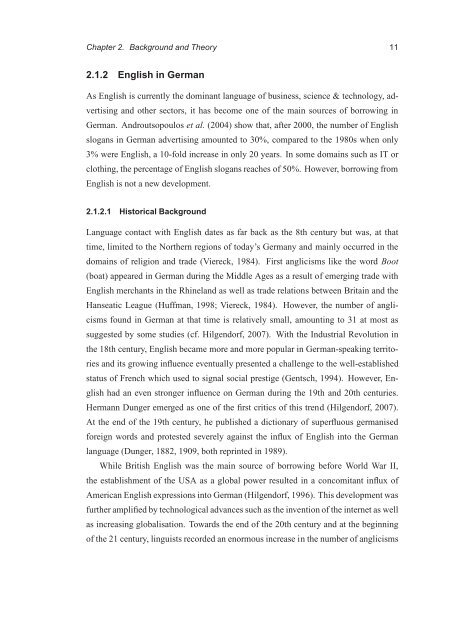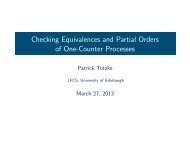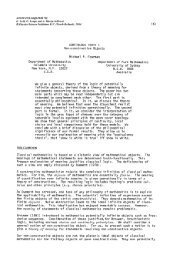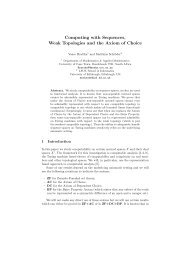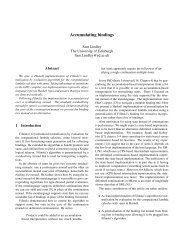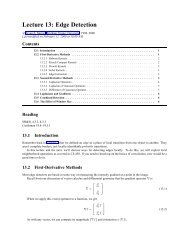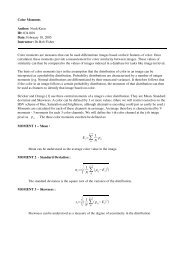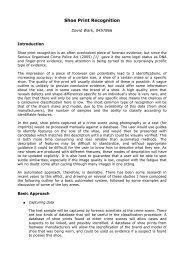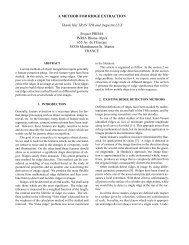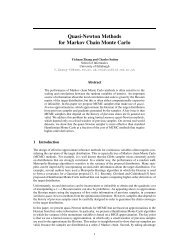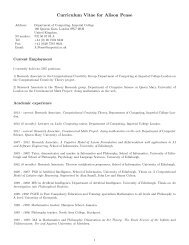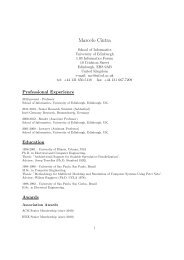PhD thesis - School of Informatics - University of Edinburgh
PhD thesis - School of Informatics - University of Edinburgh
PhD thesis - School of Informatics - University of Edinburgh
Create successful ePaper yourself
Turn your PDF publications into a flip-book with our unique Google optimized e-Paper software.
Chapter 2. Background and Theory 11<br />
2.1.2 English in German<br />
As English is currently the dominant language <strong>of</strong> business, science & technology, ad-<br />
vertising and other sectors, it has become one <strong>of</strong> the main sources <strong>of</strong> borrowing in<br />
German. Androutsopoulos et al. (2004) show that, after 2000, the number <strong>of</strong> English<br />
slogans in German advertising amounted to 30%, compared to the 1980s when only<br />
3% were English, a 10-fold increase in only 20 years. In some domains such as IT or<br />
clothing, the percentage <strong>of</strong> English slogans reaches <strong>of</strong> 50%. However, borrowing from<br />
English is not a new development.<br />
2.1.2.1 Historical Background<br />
Language contact with English dates as far back as the 8th century but was, at that<br />
time, limited to the Northern regions <strong>of</strong> today’s Germany and mainly occurred in the<br />
domains <strong>of</strong> religion and trade (Viereck, 1984). First anglicisms like the word Boot<br />
(boat) appeared in German during the Middle Ages as a result <strong>of</strong> emerging trade with<br />
English merchants in the Rhineland as well as trade relations between Britain and the<br />
Hanseatic League (Huffman, 1998; Viereck, 1984). However, the number <strong>of</strong> angli-<br />
cisms found in German at that time is relatively small, amounting to 31 at most as<br />
suggested by some studies (cf. Hilgendorf, 2007). With the Industrial Revolution in<br />
the 18th century, English became more and more popular in German-speaking territo-<br />
ries and its growing influence eventually presented a challenge to the well-established<br />
status <strong>of</strong> French which used to signal social prestige (Gentsch, 1994). However, En-<br />
glish had an even stronger influence on German during the 19th and 20th centuries.<br />
Hermann Dunger emerged as one <strong>of</strong> the first critics <strong>of</strong> this trend (Hilgendorf, 2007).<br />
At the end <strong>of</strong> the 19th century, he published a dictionary <strong>of</strong> superfluous germanised<br />
foreign words and protested severely against the influx <strong>of</strong> English into the German<br />
language (Dunger, 1882, 1909, both reprinted in 1989).<br />
While British English was the main source <strong>of</strong> borrowing before World War II,<br />
the establishment <strong>of</strong> the USA as a global power resulted in a concomitant influx <strong>of</strong><br />
American English expressions into German (Hilgendorf, 1996). This development was<br />
further amplified by technological advances such as the invention <strong>of</strong> the internet as well<br />
as increasing globalisation. Towards the end <strong>of</strong> the 20th century and at the beginning<br />
<strong>of</strong> the 21 century, linguists recorded an enormous increase in the number <strong>of</strong> anglicisms


